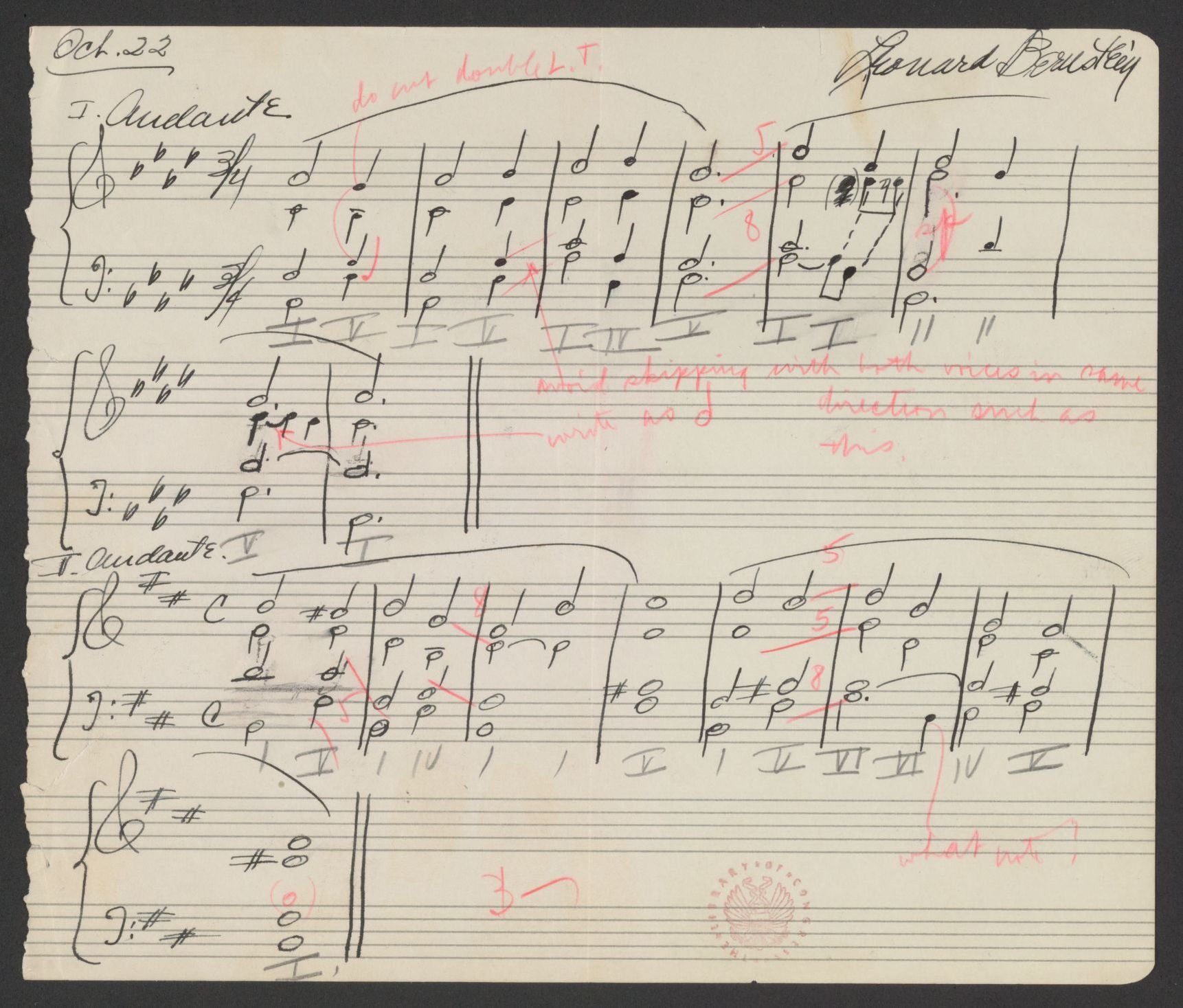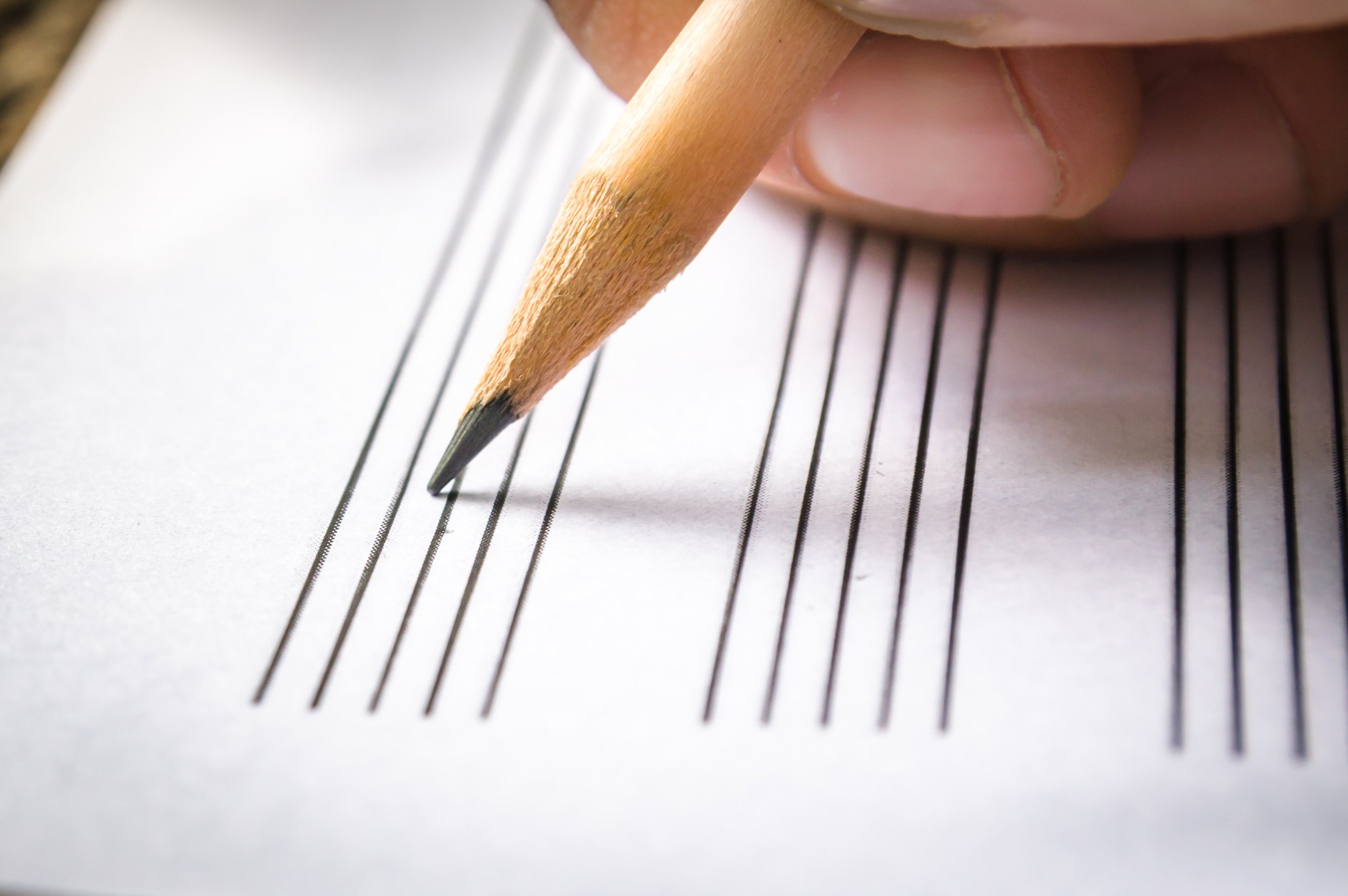
The question I’m sure you’re thinking:
Why “Wizarding”?
Because musical magic is what people truly care about:
The chord that gives you goosebumps.
An ostinato that rivets you to your seat.
The tune that gets stuck in your head.
A texture that fills you with wonder.
Composers, performers, and audiences, that’s why we’re all here—we hope to experience something magical.
Why don’t we learn to create that magic in music school?
Why we’re here: those breathtaking, goosebump-inducing moments.
“Since attending the Wizarding School, I have:
Written around 30 pieces, including a ballet and a symphony
Had pieces presented by Carnegie Hall and Merkin Hall in New York City
Served on the panel of judges for the ASCAP Morton Gould Young Composer's Awards.”
-Joseph Jones
Composer, conductor, and founder of Orchestra Amadeus
We’ve all been there—even Leonard Bernstein. Learning technique is essential, but technique is not inherently magical.
Music school focuses heavily on technique and innovation. These are essential, but they are not necessarily magical.
Nobody cares about your double fugue in inversion at the 9th . . .
Nobody cares about the unusual sound you’ve coaxed from that cello . . .
Nobody cares about your proper voice leading . . .
Nobody cares about your genre-bending style . . .
No one cares about anything like that UNLESS it’s at the service of creating a meaningful musical experience.*
* Is it truly “nobody”? Of course not, but if you want your music to appeal to anyone besides stuffy experts, then magic matters more than technique and innovation for their own sake.
Frequently Asked Questions
-
How music creates goosebumps (etc.) is NOT a mystery. Music cognition research has shown that “musical magic” is a product of repetition, tension, and surprise.
Though the research doesn’t guarantee any individual listener will be moved be these effects, it does show that most Western listeners will.
-
Many teachers are unaware of the relevant research.
Many others cannot describe it succinctly and clearly. They struggle to separate the facts from the myths and superstitions about it prevalent in the composing world.
Others claim that magic is ineffable and unteachable.
Some even argue it isn’t a desirable goal.*
* For some experimental and avant-garde music, it’s not. And that’s fine. But for the rest of us, this belief is both unnecessary and harmful to our artistic success.
-
People with composing degrees actually get the most benefit from the Wizarding School. The program is designed to complement and contextualize your skills.
This is NOT a course on undergrad-level theory and composing technique. It’s a course on how to use that technique more efficiently and reliably than you’ve ever imagined possible.
I explicitly show you how to translate your inspiration and craft into musical magic. I call out the myths and superstitions surrounding this process.
I further show you how to find and own your voice. Unlike other teachers and courses, I believe that your artistic voice is bigger than “your unique sound.” I show you how your “style” fits into the big picture.
-
You don’t need a composition degree for the Wizarding School to be a powerful experience. These are the traits that make successful Wizarding School students:
You’ve already studied undergrad-level theory, either in a university program or through other instruction.
You’ve been composing for more than a year.
You want to make an impact with your music. This could look like:
Professional performers who want to write music for themselves and their colleagues to perform proudly.
Dedicated, amateur composers who want to their music to reach a wide audience.
-
The Wizarding School covers 3 essential topics:
What artistic voice actually is and how you can focus your artistic and career efforts to hone and amplify it.
How style and timing work together to create musical magic through in-depth score study and careful examination of musical elements (melody, rhythm, texture, etc.).
The workflows and processes that most reliably and effectively translate your craft, studies, and inspiration into completed, magical music.
-
All students meet with me live on Zoom, twice per week for 15 weeks, for hands-on group workshops, score study sessions, and office hours.
VIP-program students also meet with me privately.
Between live sessions, students
Watch pre-recorded lectures on key concepts
Apply what they’re learning in guided score study and composition assignments
Meet with peer accountability partners and post in the private online forum for further feedback and support
You can expect to devote a minimum of 4–6 hours per week on the workshops and your own composing.
-
After 15 weeks, when you sit down to compose, you can can tackle every composing task with understanding and self-assurance:
Capture your inspiration
Develop your ideas
Design ear-catching sounds and textures
Write memorable melodies
Create effective tension and surprises
Identify exactly how the pieces you love created their specific magical effects
Judge the rightness and quality of what you write
Work fluently, every time you sit down to compose
Sketch efficiently
Revise confidently
-
By the end of the program, you will have:
Completed one or more original projects
Learned a comprehensive set of tools that will help you write magical music reliably and effectively.
Identified and documented your personal, best creative practices
-
With 80 hours of live instruction over 15 weeks, the Wizarding School is roughly equivalent to 5 graduate credit hours.
At Brandeis, where I got my PhD, just the basic package of the Wizarding School would cost at least $6,687.
Even a good state school (Indiana University) would charge $3,440 for the basic package in IN-STATE tuition (and an eye-popping $10,766.50 for out-of-state!).
By comparison, the basic package of the Wizarding School is a very reasonable $2,997, and the VIP package—with its additional 1:1 instruction and A-list guests—is an absolute steal at $4,497.
Likewise, the Premiere package is priced competitively with what recording services charge for a professional orchestral recording ($6,000-8,000 for JUST the recording compared to everything else you get in the Wizarding School).
The Wizarding School does represent an investment in yourself and your musical future. If the cost is still a reach for you, I also offer payment plans.
-
Just because you aren’t a current Wizarding School student doesn’t mean you no longer get my support!
Here are three ways your Wizarding experience can continue after the course is over:
All Wizarding School students get lifetime access to the Wizarding School Training Library, including future updates.
I often offer free workshops. To stay informed of when these happen, sign up for my mailing list.
If you have short questions, feel free to post them on the Wizarding School for Composers Facebook group and email them to me.

Have any more questions?
Schedule a free call with me, and we’ll answer them!




